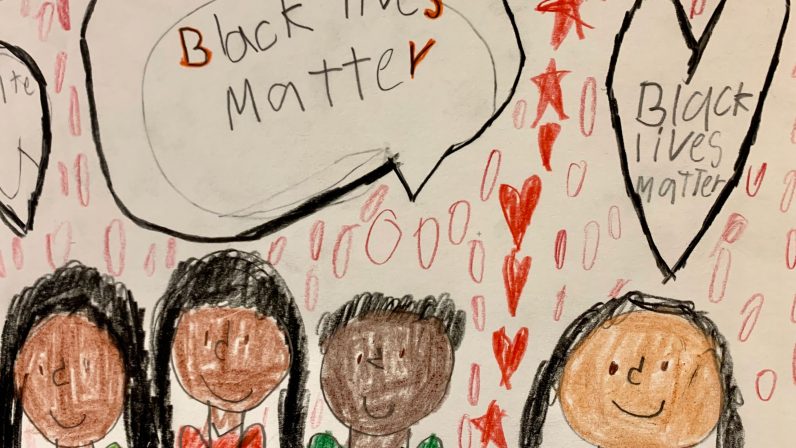What I’ve always loved about this time of year as a teacher is the opportunity to explore human rights issues with children. Even though I haven’t been in the classroom for over ten years, I manage to keep my fingers in the pie, so to speak. It’s one of the most organic parts of my teaching practice, which manifests through writing.
With each group of children, I’ve taught them the idea of “cracking open” a word or phrase. I was first introduced to this process by my poetry teacher, Georgia Heard. In her book, Revision Toolbox, she explains how to crack open words to be more specific and descriptive. For example, “We had a fun recess,” becomes “We found a broken blue eggshell in a corner of the playground.” Cracking open words is not a new idea to my 3rd-5th grade writers. In fact, one student cracked open my thinking in a big way this week.
As part of a lesson from Tiffany Jewell’s book This Book Is Anti-racist, we were talking about identity. I explained to students that identity, according to Jewell, is everything within you and everything that surrounds you. “Identity is what makes you YOU.” After that, I invited each of them to make a list of words that described their identity, and included a list of my own as an example. They had lots of questions about certain words on my list, such as outlier, innovator, and anti-racist. We ran out of time for them to share theirs, but I’m certain they will be interesting. Eventually, they’ll also draw a self-portrait and surround it with their identity words.
Toward the end of the lesson, we were reflecting on why an exercise of exploring identity might be beneficial. One boy asked to speak. “It’s like cracking open who you are.” I was stunned, yet not surprised at the wisdom of this child. He clearly grasped and expressed the deeper layers of our work with both identity and poetry, that it’s much more than cracking open words to add details to our writing. It’s an open-heartedness that allows us receive the world with new eyes.
On Wednesday, as I watched the inauguration ceremony, I was cracked open by another young person, who is also a poet. Among the many significant, historical elements of the day was the reading by Amanda Gorman, the national youth poet laureate. Stunningly radiant in her bright yellow coat and red headband, she recited her poem of hope called “The Hill We Climb.” There were many lines in Amanda’s poem that stood out, although it was the last ones that spoke to, and cracked open, my heart:
“The new dawn blooms as we free it,
For there is always light,
if only we are brave enough to see it,
if only we are brave enough to be it.”
These times are asking us to see the light, and to be it. I can think of no greater calling for all of us to bring about the change and healing our planet needs.
(art work courtesy of Shiv Mehra)

